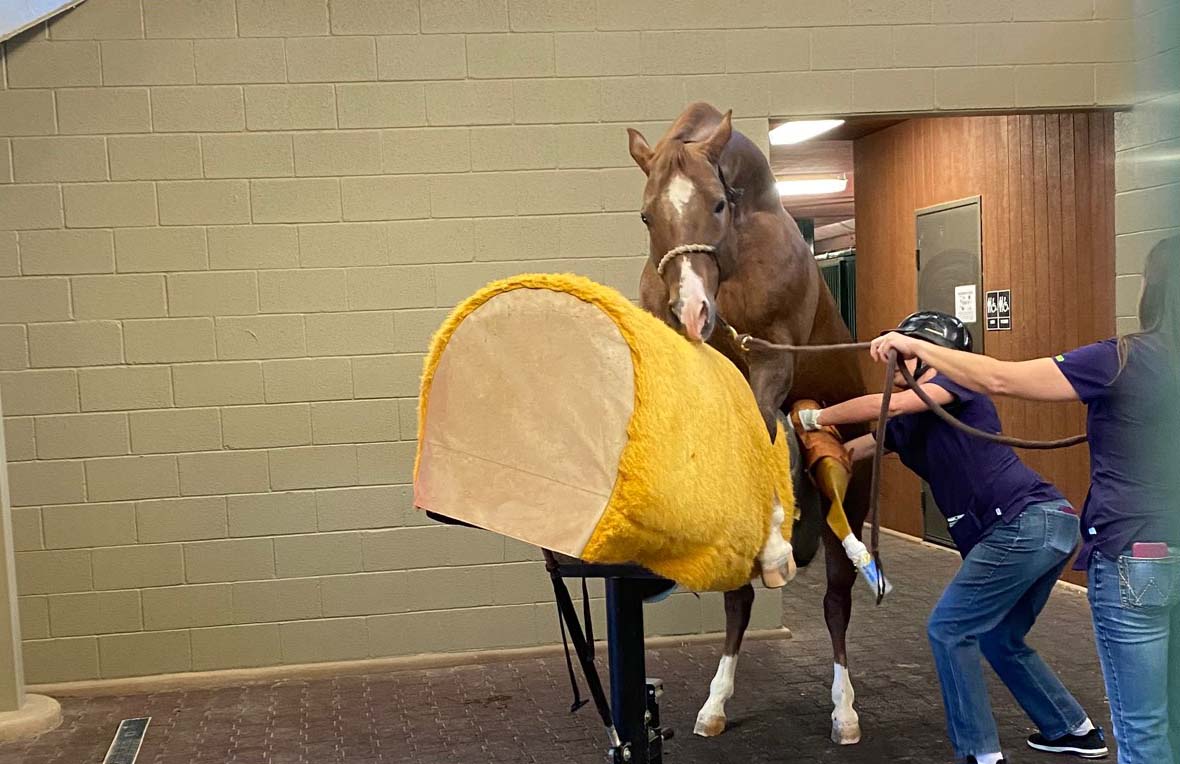Equine strangles, also known simply as “strangles,” is a highly contagious bacterial infection that affects horses, ponies, and other equids. It is caused by the bacterium Streptococcus equi subspecies equi (S. equi). Strangles is characterized by abscesses and inflammation of the lymph nodes in the head and neck area, leading to symptoms such as fever, nasal discharge, difficulty swallowing, and swelling of the lymph nodes.
Here are some key points about equine strangles:
- Transmission: Strangles is primarily spread through direct contact between infected and susceptible horses. This can occur through nasal discharge, pus from abscesses, shared water and feed troughs, tack and equipment, and even human handlers who come into contact with infected horses.
- Clinical Signs: Horses with strangles typically develop symptoms within 3-14 days after exposure to the bacteria. Common signs include fever, nasal discharge (often thick and purulent), coughing, difficulty swallowing, and swelling of the lymph nodes under the jaw, giving the appearance of a “strangled” throat. Abscesses may rupture and release pus, which can further spread the infection.
- Diagnosis: A veterinarian can diagnose strangles through clinical signs, examination of lymph node abscesses, and laboratory tests such as bacterial culture or PCR (polymerase chain reaction) testing.
- Treatment: Treatment of strangles typically involves supportive care, including drainage of abscesses, pain management, and antibiotics (such as penicillin or trimethoprim-sulfamethoxazole) to control the bacterial infection. Isolation of infected horses is crucial to prevent the spread of the disease.
- Quarantine and Biosecurity: Quarantine measures should be implemented to prevent the spread of strangles on a premises. This involves isolating infected horses, implementing strict hygiene practices, and monitoring all horses for symptoms. Quarantine can last several weeks until all infected horses have recovered and tested negative for the bacteria.
- Vaccination: Vaccines are available to help prevent strangles, but they are not always 100% effective. They may reduce the severity of the disease and the risk of transmission but do not provide complete immunity. Consult with a veterinarian to determine the appropriate vaccination strategy for your horses.
- Complications: Strangles can lead to various complications, including guttural pouch infections, pneumonia, and bastard strangles (when the infection spreads to other parts of the body). These complications can be severe and require specialized treatment.
- Long-term Effects: While most horses recover from strangles with proper care, some may become carriers of the bacteria and shed it intermittently without showing clinical signs. These carrier horses can serve as sources of infection for other susceptible horses.
It’s important to consult with a veterinarian if you suspect strangles in your horse or if you have concerns about preventing its spread. Early detection and proper management are essential to controlling this contagious equine disease.








